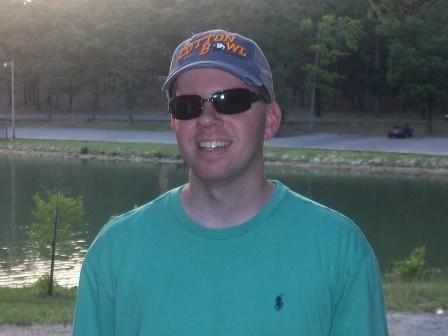Andy Sullivan: Against the Grain
On the eve of the millennium, as some partied like it’s 1999, others believed the end of the ‘90’s marked a countdown to the end of the world. Y2K was a computer anomaly that experts said could bring global Armageddon. I have good news to report: that did not happen. Oddly enough, computer engineer Peter De Jager warned about Y2K in 1979!
“Back in the 1960’s, and 1970’s, when you started the computer, there was no place for the computer to get the date and time because the internet didn’t exist. You had to enter it in. All the programs were written in the ‘50’s and ‘60’s. Data was expensive so you shortened the year to two digits. I’d just come out of university, studying numerical analysis. I figured something was going to go wrong January 1 of 2000 because we’re going to enter 00 and the computer is going to think it’s 1900”.
That was Peter’s lightbulb moment. The computers’ confusion over what year it is could lead to cataclysmic consequences. Peter had informed his boss who said “someone will fix it”. Those same someone’s had been ignoring the two-digit date problem for decades. “In 1970, the Scottish bank, Widows Bank, ran into a problem. When entering 30-year mortgages, the closing date of the mortgage is in the year 2000. The computer didn’t take kindly to that. The standard phrase was still “someone else will fix this by then”. Of course, no one does.
As the world begins to explore cyberspace, the issue becomes more urgent. In 1989, British scientist Tim Berners-Lee, along with Robert Calliau, invented the World Wide Web. That set the stage for the ‘90’s. In the early ’90, high end computers had 640k of memory. High density storage was 360k. By introducing faster models with even more memory, Peter’s becoming increasingly passionate about repairing the looming Y2K bug. “Wherever you had a computer controlling something, there was a possibility the computer wouldn’t be able to do its job”. It means every bank, institution and government in the world could suffer massive operational failures at the turn of the century.
With the Y2K clock counting down, Peter De Jager steps up his speaking engagements to help spread the word. When not on the road, Peter focused on his burgeoning website traffic. “We’ve had an online mailing list and at one point had 80,000 subscribers. We send 400-500 emails to the mail list every single day”. The downside to successful Y2K messaging was how easily those messages get distorted in the ‘90’s internet age. Basically, when you create enough noise and the media catches on, people who know nothing about the problem, all they hear is fearmongering.
No bombs went off here when the calendar turned from ’99 to ’00. There were no viruses. Nothing plummeted to the ground. The one bomb that goes off is in Russia-Boris Yeltsin announces he’s stepping down and the Vladimir Putin era begins amidst millennium celebrations. Sam Donaldson told someone in the know: “well this has all been a waste of time”. The response? “You all don’t care because nobody died. If there’s not blood in the streets, you think it’s not a problem”. Isn’t that a perfect summation of network news in general? Y2K fixes cost an estimated $400 billion worldwide. People were mad that the world didn’t end. De Jager received death threats. What a wild time it was! (Vice Network, Dark Side of the ‘90’s). Below are the links to my podcast, Blendertainment.
https://open.spotify.com/show/61yTPt9wXdz37DZTbPUs16?si=lw4gR-7xQ22E-zhyGDyHyg
https://podcasts.apple.com/us/podcast/blendertainment/id1541097172




























